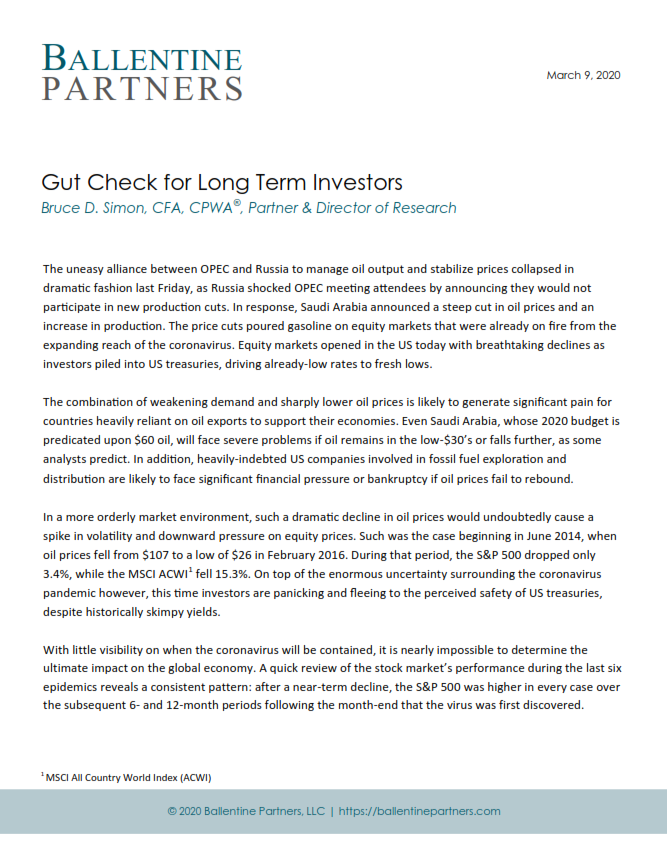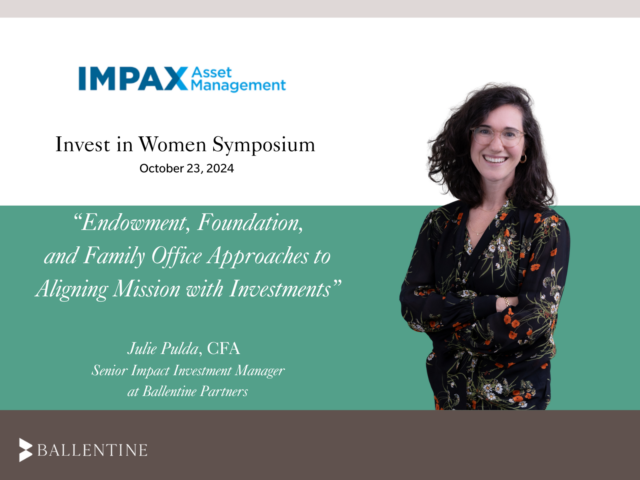The uneasy alliance between OPEC and Russia to manage oil output and stabilize prices collapsed in dramatic fashion last Friday, as Russia shocked OPEC meeting attendees by announcing they would not participate in new production cuts. In response, Saudi Arabia announced a steep cut in oil prices and an increase in production. The price cuts poured gasoline on equity markets that were already on fire from the expanding reach of the coronavirus. Equity markets opened in the US today with breathtaking declines as investors piled into US treasuries, driving already-low rates to fresh lows.
The combination of weakening demand and sharply lower oil prices is likely to generate significant pain for countries heavily reliant on oil exports to support their economies. Even Saudi Arabia, whose 2020 budget is predicated upon $60 oil, will face severe problems if oil remains in the low-$30’s or falls further, as some analysts predict. In addition, heavily-indebted US companies involved in fossil fuel exploration and distribution are likely to face significant financial pressure or bankruptcy if oil prices fail to rebound.
In a more orderly market environment, such a dramatic decline in oil prices would undoubtedly cause a spike in volatility and downward pressure on equity prices. Such was the case beginning in June 2014, when oil prices fell from $107 to a low of $26 in February 2016. During that period, the S&P 500 dropped only 3.4%, while the MSCI ACWI1 fell 15.3%. On top of the enormous uncertainty surrounding the coronavirus pandemic however, this time investors are panicking and fleeing to the perceived safety of US treasuries, despite historically skimpy yields.
With little visibility on when the coronavirus will be contained, it is nearly impossible to determine the ultimate impact on the global economy. A quick review of the stock market’s performance during the last six epidemics reveals a consistent pattern: after a near-term decline, the S&P 500 was higher in every case over the subsequent 6- and 12-month periods following the month-end that the virus was first discovered.
The coronavirus presents some unique challenges to the world’s population, and therefore experience with prior epidemics may be less relevant in this case. Our base case is that the virus causes a sharp slowdown in Q1 and Q2 economic activity, with a gradual rebound beginning in Q3. However, given that we are in the early stages of the pandemic, we acknowledge that the risk to our forecast is to the downside.
Whether the outbreak is contained in one quarter or four, we believe the global economy will recover and equities will rebound. One more thing is likely: markets will have already recovered strongly by the time convincing evidence is produced that the virus is under control. Long term investors can benefit from the current volatility by selectively adding to equities as prices fall and be willing to step up in the face of a barrage of negative headlines; we will be carefully watching for these opportunities on behalf of our clients as the situation continues to unfold.
1 MSCI All Country World Index (ACWI)
Learn more about Bruce Simon, our Director of Research.
This report is the confidential work product of Ballentine Partners. Unauthorized distribution of this material is strictly prohibited. The information in this report is deemed to be reliable but has not been independently verified. Some of the conclusions in this report are intended to be generalizations. The specific circumstances of an individual’s situation may require advice that is different from that reflected in this report. Furthermore, the advice reflected in this report is based on our opinion, and our opinion may change as new information becomes available. Nothing in this presentation should be construed as an offer to sell or a solicitation of an offer to buy any securities. You should read the prospectus or offering memo before making any investment. You are solely responsible for any decision to invest in a private offering. The investment recommendations contained in this document may not prove to be profitable, and the actual performance of any investment may not be as favorable as the expectations that are expressed in this document. There is no guarantee that the past performance of any investment will continue in the future.





